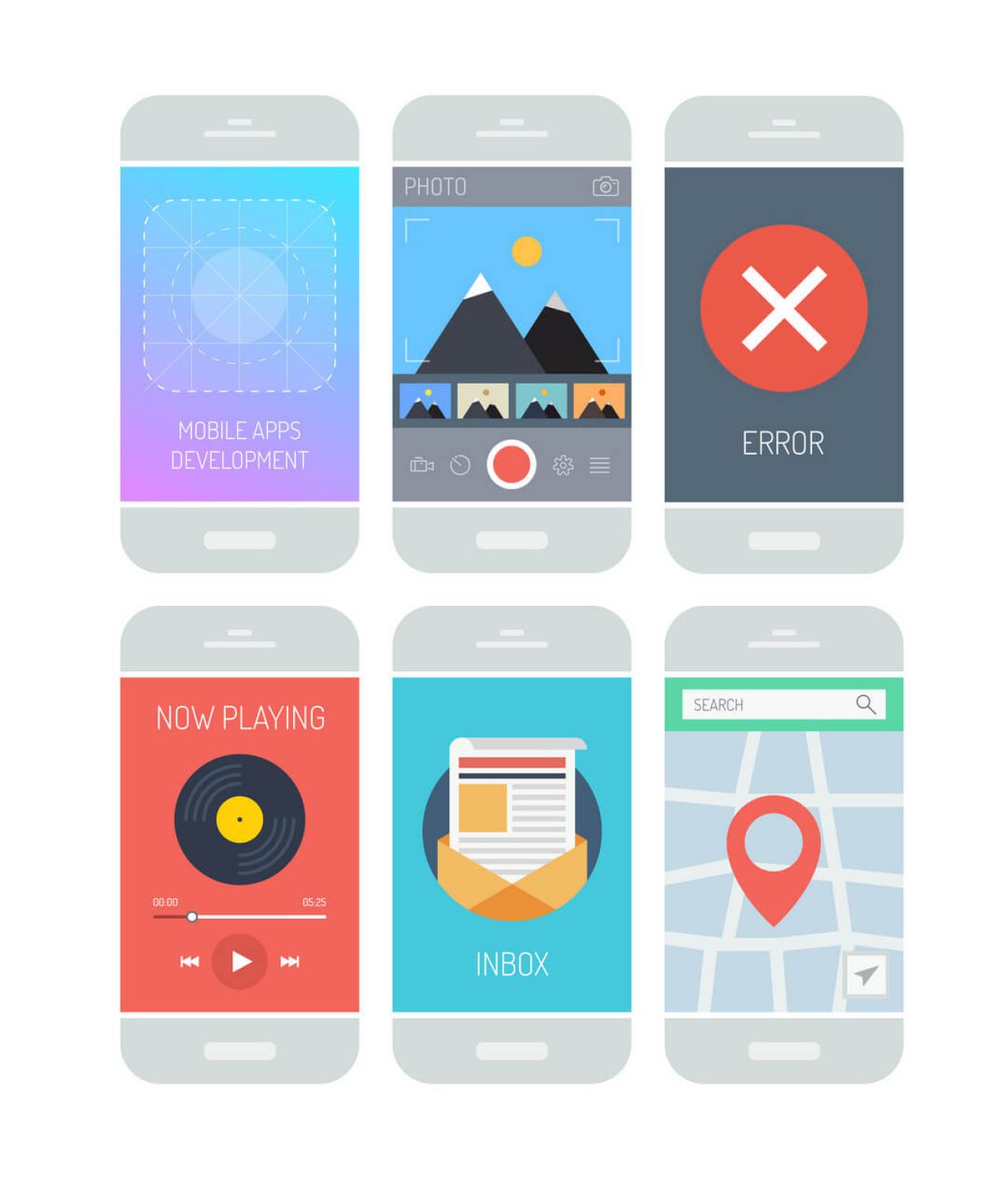How to Find Mobile App Developers in a Smart Way

You are afraid of losing money and time, so it is very important for you to make a deliberate choice.
We have some useful tips for you. They will allow you to avoid many pitfalls during the process of finding a mobile app development company.
To begin with, you should decide what you need from a developer. You must know exactly what the final product will look like and what functions it will possess.
Ask yourself these questions:
- What do I need a mobile application for?
For example, you may need it to improve your customer service, organize better communication with suppliers, or manage sales channels.
- What is my target audience?
This answer will help you create a detailed portrait of a buyer persona to fine-tune app features with buyers’ needs in mind and later promote the app on the market.
- How should the technical architecture of my application look like?
- What budget am I willing to spend?
- What platform my future app should be based on?
For comfortable comparison, I advise you to draw a table with several columns in it and make notes about each company you select. Consider choosing at least five mobile development companies.
Selection Criteria
Portfolio
Check the portfolio of a company. To do this, visit their website. While browsing it, think about whether you like the website or not. First impressions matter.

If you don’t find the portfolio, high chances are the company is not credible. Proceed to another firm.
When you look through the portfolio, check if the company has expertise in platforms you plan to support, and experience in developing apps for the industry you are interested in.
It would be great if you could find a playbook on their website. The playbook is a guide to the company’s development process. It describes many aspects of development, so it might be useful.
Client reviews of mobile app developers
Examine reviews that former and current clients have left for development companies and pay attention to how the firm representatives responded to them.
To find user reviews, google “company name” + reviews, or visit popular review platforms such as Clutch and GoodFirms.
Talk to people in your environment – friends, colleagues, business partners, etc. It may be that some of them have already worked with the companies you’ve found. If you don’t know whom to ask, check Facebook communities, or Quora.
Be cautious – do not trust all user comments. There are some companies that sell reviews:

Expertise

You need to find mobile app developers with a high level of experience. But this may be tricky for the mobile app development industry.
iPhone is going to celebrate the 13th anniversary in 2020, so there is no chance you can find an iOS developer with 15 years of experience.
To find the information about the company experience, visit their website, or check their LinkedIn profile. Also, with the help of LinkedIn, you can find information about almost every member of the team.
Location
Always pay attention to the developer’s location.
The US and Western Europe based development companies have higher rates. However, communication with the next door contractor may be much easier. It’s especially important when your requirements are not clear.
Communication with the Company
During the first rounds of interaction, consider how quickly the company responds, and whether or not they are polite.
Also, you may take note of how many questions they ask, and if your app idea inspires them.
The company must clearly understand your app concept and all your requirements. They must provide quick feedback to all your questions.
In-app development, good communication plays a very important role.
According to Geneca’s survey, 75% of respondents admit that their projects are either always or usually “doomed right from the start.”
Also, 78% “feel the business is usually or always out of sync with project requirements and business stakeholders need to be more involved and engaged in the requirements process.”

So, you should ask your potential contractors a lot of questions and provide them with data. The more details you will get from the beginning, the safer you’ll be.
Here’s what you should ask the company:
Common questions
Initially, ask some common questions about the company.
- Why should you work with them instead of their competitors?
- Can they share a list of their former clients? Thus, you’ll be able to connect with those clients and ask if they were satisfied with their contractor.
- What was the best mobile app they developed? What was the worst? Why? What problems did they struggle with?
- What do they think about your app idea? Does it seem viable to them and why?
- How do they deal with missed deadlines?
- Who will be the main person to connect with in case of emergencies?
- What is their development process?
- Who will be the owner of the source code?
Does the company understand your industry?
Ask them if they understand the specifics of your industry. It is very important for them to know your niche to come up with a decent app.
So, you better have a company with development experiences in your industry, such as logistics, healthcare or manufacturing.
If the company acknowledges they have such experience, ask them for references and their portfolio of related work.
How will we communicate?

The importance of regular communication during the development process cannot be exaggerated. Poor communication with a developer can result in a disaster.
Be especially careful if the development company resides in a timezone different from yours.
Here is an example of poor communication. This customer hired a Chinese developer on former Elance to build his first iPhone app: “However, the frustration that went along with the process, dealing with someone on a completely opposite schedule, and constant battling over the nitty-gritty left me feeling like I should learn how to do it myself.”
Without your staying in regular touch with the company, the developer won’t be able to understand your requirements. Also, you won’t know about all the changes during the process.
Kim Lachance, the senior editor at SJR, says: “The quality of your app often depends on how clearly and often you communicate your app design and functionality requirements throughout the development process.”
She adds that it is very important to know how your app developer prefers to communicate – in person or via phone, by Skype or through email, how often you will speak and how often he will update you on the project status.
So, you should discuss all aspects of your communication in detail beforehand.
What about the budget?
You need to discuss all the issues related to the budget with the development company.
To begin with, ask them for a quote containing the overall project cost, the hourly rate this estimate is based on and development milestones with the deadlines.

The budget may depend on different things. Also, remember that during the development of your app, the budget tends to increase. New functionality or unexpected difficulties that emerge at a particular development stage may be responsible for that.
You should also inquire about what will be done if you are not satisfied with the final product and how they will deal with it.
What will be the app testing method?
It is very important to make your app bug free.
Statistics show that the stable running of an application may mean a lot for its success.
According to the study by Adjust, most apps get deleted in 5.8 days after they’re last used. One of the reasons why apps get deleted is because they’re buggy.
So, you’d better ask if the development company is capable of troubleshooting the bugs. If yes, how do they do it? Here are some testing approaches to avoid.
What about data safety and back-up plans?
Tom Mulvehill, program director at IBM, Mobile Security, states: “Once you have built a secure mobile app you must keep is secure. Why? When mobile apps are released “into the wild” it is very easy for hackers to download the app.”
He also says that if a hacker gets your app, he can reverse engineer the app or repack your data with mobile malware. The outcome of this can be very harmful and unpredictable.
In recent years, the problem of safety has gotten lots of recognition.
According to the HP 2018 Cybersecurity Guide, today, 6 million to 11 million new malware infections are going to be recorded.
So, nowadays, you’d better take care of security.
Does the company provide technical support after a mobile app is launched?
App development is a long process. Sometimes it requires the involvement of the development team, even after the product is released.
Users may find bugs, and the developer will need to fix them. Also, the development team must regularly update the app to improve its work.
Does the company offer marketing services?
Marketing means a lot to the success of an application.
Some development companies provide such a service as an additional option.
Ask the development company if they can take responsibility for marketing your product.
Who will submit a mobile app to the app store?
You need to clarify if you are the one to upload your application to the stores or if the developers will do it for you.
Kim Lachance Shandrow recommends: “After you’ve approved the beta-tested version of your app, the last step is for the developer to submit it to an app store for approval to be sold there. App submission is often a long, multi-step process that your developer should already know how to successfully navigate.”
It’s Time To Make a Choice

Finally, you know all the important information about the companies and the services they provide. Now, it is time to make your decision.
Do not rush. Remember, your money and time are at stake.
Consider all the pros and cons of every development company from your list. Also, take into consideration your personal impression and feelings.
Then, select the one most suitable for you and give them a small paid task before switching to your entire project.
Summary
It is important to hire a credible mobile app development company. Sometimes it is very hard to find excellent mobile app developers.
Here is a quick summary of what we suggest to do:
- Find at least 5 mobile development companies (using Google, LinkedIn, developers’ forums, word of mouth, etc.), and put them all in one file, preferably Excel.
- Do the research: visit a company’s website, check user reviews and the portfolio.
- Seek information about the team – its location and level of expertise.
- Always pay attention to the developer’s location.
- Contact the company and ask questions.
- Compare all companies on your list.
- Make your decision.
- Start with a small paid task to make sure your choice was correct.
If you are considering a team for your project, our company will gladly introduce you to our skilled and experienced developers, please, contact us.





Millie Jack says:
Well, when I was looking for a developer, I tool help from the internet and found pretty good options. Thanks for this amazing blog btw.